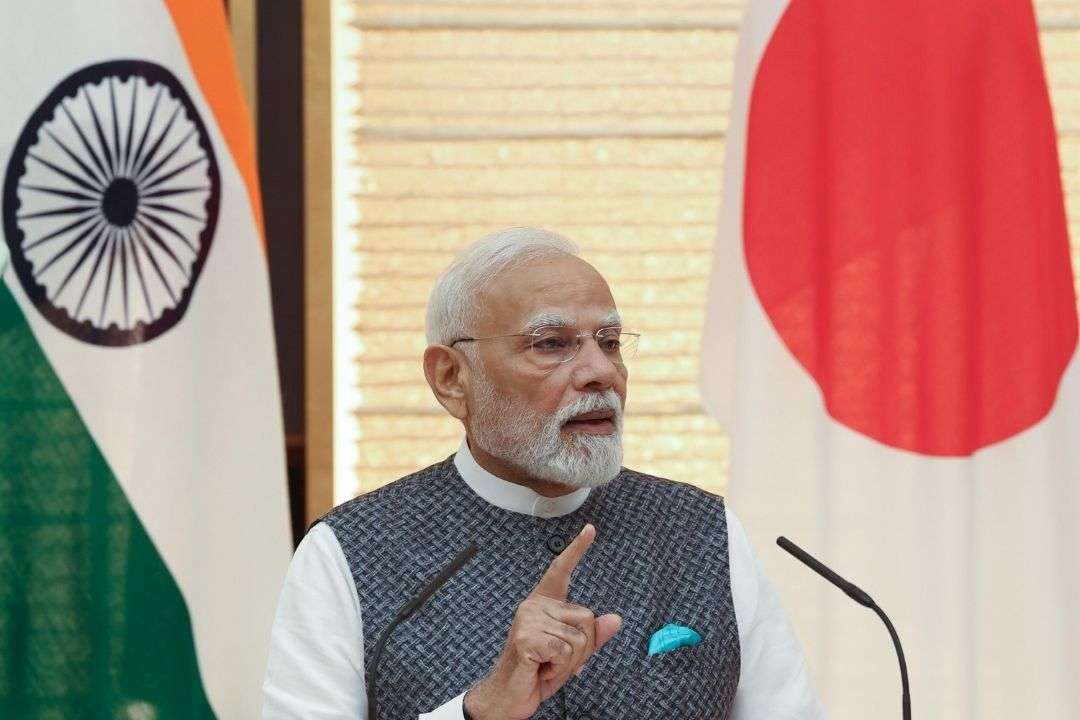Japan has committed to investing 10 trillion yen (around ₹60,000 crore) in India over the next ten years, as both countries signed a series of high-profile agreements aimed at strengthening their economic and strategic ties. These developments were announced after summit-level talks between Prime Minister Narendra Modi and Japanese Prime Minister Shigeru Ishiba.
India and Japan signed 13 key agreements as part of their growing strategic and economic partnership. Among these, a major highlight was the adoption of a long-term roadmap aimed at enhancing cooperation in trade, technology, and mobility. This comprehensive plan lays the groundwork for sustained economic engagement between the two nations over the next decade.
A significant agreement was also reached on defence cooperation, introducing a new framework to strengthen bilateral security ties. This move reflects shared concerns over regional stability and a commitment to addressing evolving security challenges through closer collaboration.
In a step toward boosting workforce mobility, both sides finalized a plan to enable the movement of 50,000 skilled and semi-skilled Indian professionals to Japan over the next five years. Another agreement will advance cooperation on digital public infrastructure, aiming to support innovation in areas such as e-governance and digital services.
Beyond these initiatives, both countries committed to expanding collaboration in critical sectors including clean energy, telecom, semiconductors, pharmaceuticals, and critical minerals. Notably, one agreement focuses on reinforcing supply chain resilience through joint efforts in mineral exploration, processing, and strategic stockpiling, ensuring greater stability in essential industries.
Japan and India will work together on decarbonisation projects, including a joint crediting mechanism to support clean technologies and infrastructure. A separate agreement was signed between the Indian and Japanese space agencies for a joint lunar mission.
Japan’s support for India’s space ambitions includes cooperation on the Chandrayaan-5 project, and both sides highlighted its significance as a landmark in space collaboration. Both leaders reaffirmed their commitment to regional stability, voicing concern over the security situation in the East and South China Seas. They emphasized peaceful resolution of maritime disputes based on international law, particularly the United Nations Convention on the Law of the Sea (UNCLOS).
In response to the recent terrorist attack in Pahalgam, the two prime ministers jointly condemned the violence and demanded that those responsible be held accountable. The attack was linked to The Resistance Front, as reported by a UN monitoring team.
Mr Modi and Mr Ishiba reviewed progress on the Mumbai-Ahmedabad high-speed rail project. Japan confirmed plans to introduce its advanced E10 Shinkansen trains in India by the early 2030s, marking a major leap in transportation technology. Modi called the partnership between Japanese innovation and Indian talent a “winning combination”, noting joint efforts in shipbuilding, aviation, and ports under a broader mobility agreement.
The two governments agreed to fast-track policy-level talks on economic security and high-tech trade, aiming to ease export controls and identify specific collaborative projects. Prime Minister Ishiba encouraged India to continue regulatory reforms to make its market more conducive to Japanese investment. Mr Modi acknowledged the role of Japanese companies in driving employment and innovation in India, and invited more firms to invest by taking advantage of ongoing economic reforms.








